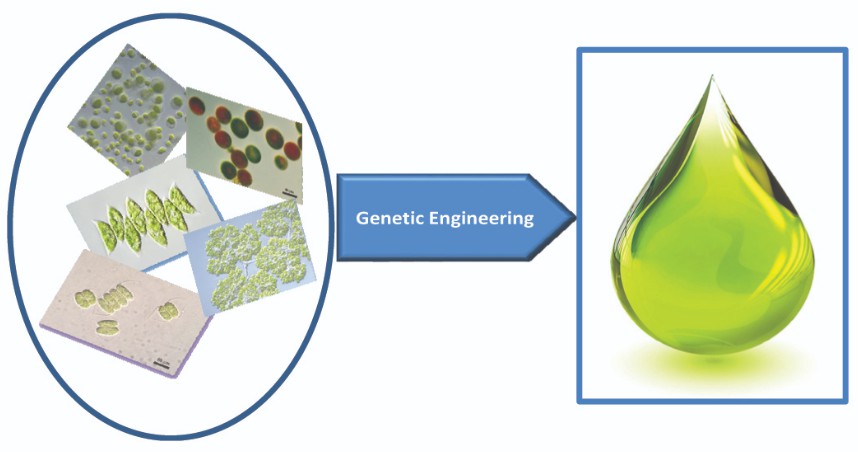The current use of fossil fuels leads to resource depletion and climate change. For decades, photosynthetic algae, including microalgae and seaweeds, have attracted considerable interest as a possible biofuel resource. Here, Lifeasible offers specialized solutions for the genetic engineering of microalgae for biofuel production.
Many eukaryotic microalgae can store large amounts of energy-rich compounds such as triacylglycerol (TAG) and starch, which can produce several different biofuels, including biodiesel and ethanol. From an environmental perspective, microalgae are particularly attractive as a fuel source because they consume carbon dioxide and can be grown on marginal lands using waste or salt water. In addition, it is possible to use the metabolic pathways of microalgae to produce a variety of biofuels. To promote the use of microalgae in biofuel production, it is essential to design solutions to optimize the productivity of any microalgae culture system and conduct bioprospecting efforts to identify strains with as many desirable biofuel properties as possible. Microalgal genetic engineering plays a vital role in this process.
 Fig 1. Genetically engineered microalgae for enhanced biofuel production. (Korkhovoy V, et al., 2016)
Fig 1. Genetically engineered microalgae for enhanced biofuel production. (Korkhovoy V, et al., 2016)
Lifeasible's mission is to target genetic modifications for microalgal biofuel applications. Our scientists work on genetic engineering to increase and modify the accumulation or release of energy products or their precursors (e.g., lipids, alcohols, hydrocarbons) in photosynthetic microalgae. Among the biochemical components of microalgae, lipids have the highest energy levels. Our focus is to increase the accumulation of lipids in microalgae through genetic engineering, containing the following:
Both the quantity and quality of diesel precursors from a given strain are closely related to how lipid metabolism is controlled. We offer the following transgenic strategies for altering lipid content in microalgae to enhance diesel fuel production.
We increase lipid accumulation and content in microalgae by knocking out and overexpressing genes involved in microalgal lipid synthesis.
We achieve the inactivation of genes involved in lipid catabolism by random mutagenesis or RNA silencing.
We transgenically overexpress thioesterases in microalgae to alter fatty acid chain lengths and thus improve the suitability of microalgae-derived diesel feedstocks.
We regulate whole microalgal intracellular metabolic pathways mainly by controlling the abundance or function of various enzymes in microalgae associated with producing desired components.
At Lifeasible, we can quickly help you improve lipid accumulation in transgenic strains to increase productivity for biofuel production. We are your trusted partner in all aspects of microalgae research. If you are interested in our solutions for the genetic engineering of microalgae for biofuels production, please do not hesitate to contact us.
Reference
Lifeasible has established a one-stop service platform for plants. In addition to obtaining customized solutions for plant genetic engineering, customers can also conduct follow-up analysis and research on plants through our analysis platform. The analytical services we provide include but are not limited to the following:
STU-CRISPR System Improves Plant Genome Editing Efficiency
April 19, 2024
Application of Exosomes in Facial Beauty
April 12, 2024